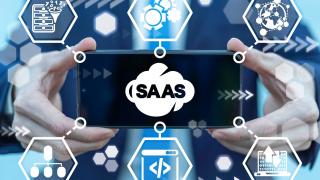
Businesses are increasingly faced with the decision of buying software outright versus going with a SaaS (software as a service) programme. This is becoming the norm for all types of software, including accounting software, CRM, CAD, ERP and many others.
From a software standpoint, the SaaS programmes are often more appealing - because they are likely newer technology, they probably have much more modern and cleaner interfaces and often they have superior functionality. Then you see the price and you think, wait, do I have to pay a monthly (or annual) fee forever?
This is when you inevitably pull out the calculator and start doing some quick math. What is the upfront cost? How about a 5 year cost, or even 10 year cost? And on the surface, the price from the supplier of the old, on-premise solution seems to make a lot more sense.
Now you start to rationalise. Does it really matter if the interface is a little dated? Do you really need a few of those bells and whistles? Do you have to be able to use the software on a phone? After all, you are going to be saving a lot of money! Or are you….?
This is where the emotional reaction to the prospect of a forever payment can skew the thought process of a decision maker. Unfortunately, this happens way too often and businesses make what they think is a smart financial decision, but ultimately, they haven’t considered all of the hidden IT costs.
IT costs can add up quickly, but SME businesses rarely sit down to see how much they’re spending. It can be surprising how much everything costs when you put it all together.
Some things to consider:
Server:
Do you already have a server? Servers can be a very large expense. Because they run 24/7, servers do periodically need to be replaced. The average lifespan of a server is about 5 years, so this expense would come up again.
READ: Five Ways ERP Software Helps Manufacturers To Increase Sales.
Microsoft SQL Licenses:
Depending on the type of software, you may need Microsoft SQL licenses. In this case, once you have the server, you still need to purchase the SQL license to be able to use it.
Security and Virus Protection:
Computer security and virus protection have become more and more important. After all, you need to protect your company information. You don’t want any malicious person to be able to access your data to ransom it, steal it, or delete it altogether. The cost of security is much less than how much it would cost to recover from getting hacked.
READ: 6 Reasons Why ERP Makes Sense For Small Job Shops.
IT Labour Costs:
In order to get the server, SQL licenses and security set up correctly, you may need to have a professional do it. Once the environment is configured properly, you will now need someone to install the software. This installation will not only have to take place on the server, but also every workstation that will run the software. Don’t forget, you will likely have to install your own software updates, so there will be some work there as well.
All of these processes can be complicated and your shop depends on getting them right. That being said, such critical labour does not come cheap!
Data Backups:
The best software in the world is useless if your data disappears. So it’s even more critical to be sure that this data is backed up frequently so that nothing is lost. A good data backup programme is an absolutely essential requirement. Just like the security programme, this software becomes invaluable when you need it.
READ: Why ERP Is The Backbone of Industry 4.0.
Conclusion:
The total cost of everything listed above can vary depending on the size of your business, but it is definitely a big number! If you go with a SaaS product, none of these things are needed. Your software vendor will host and maintain your software and data. You just need an internet connection.
If you take all of these costs and add them to the initial software investment as well as the annual maintenance fees of up to 20%, the SaaS price probably doesn’t look so bad anymore! This is before you even consider some of the obvious advantages of a SaaS programme such as lower upfront cost, peace of mind and the convenience of being able to access your software from anywhere, any time and on any device.
In 2020, more and more software companies are going the route of a SaaS model and when you add the numbers up, this isn’t necessarily a bad thing.
About Shoptech:
If you’re looking to invest in ERP, Shoptech’s E2 Shop System offers everything you would expect from modern ERP software – web based, free iOS and Android apps, customisable dashboards and more!. Established in 1984, Shoptech Software is a leading provider of Shop Management Software for SME manufacturers. Shoptech has over 9,500 customers worldwide and is growing fast. Shoptech has forged strategic alliances with business partners, garnered recognition in business and shop trade magazines, and gained a reputation as consistently being at the forefront of technological innovations to best serve the various manufacturing markets.
Click here to find out more about Shoptech’s E2 shop system.